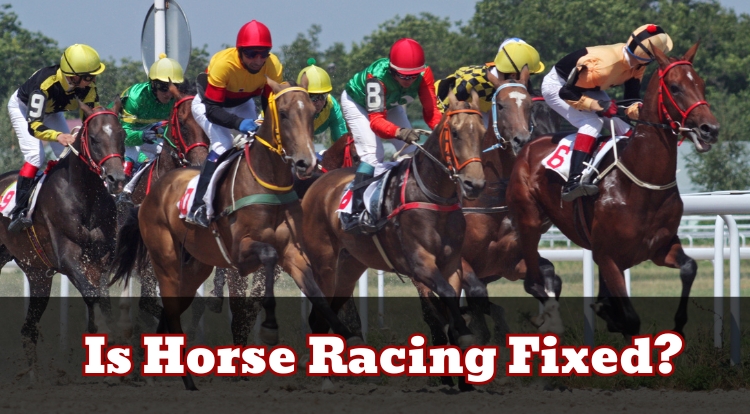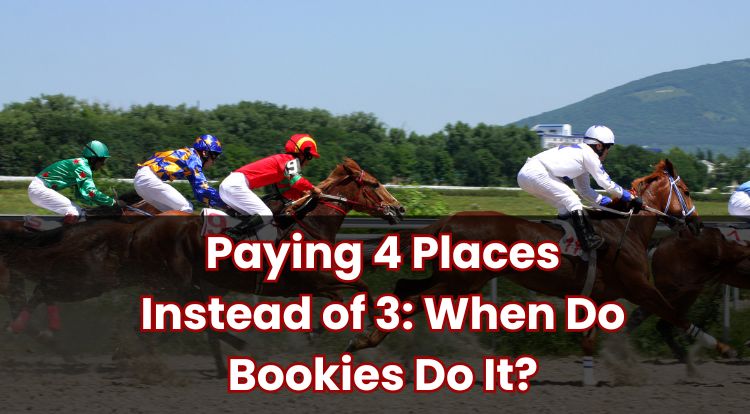Does Rain Stop Horse Racing?
Wet weather is something everyone in the UK is used to, but how does it affect horse racing? If you have ever wondered what happens when the skies open on race day, you are not alone.
If you are new to racing or placing bets, it’s not always clear what to expect when the British weather turns wet. This article breaks down what rain means for horse racing, and what you should look out for before race day.
How Rain Affects Horse Racing
Wet conditions can change the way horse racing is run. When rain falls, it alters the track surface. In the UK, most races are on either turf (grass) or all-weather tracks made from artificial materials. When turf gets soaked, it is described as “heavy” or “soft”, which can slow horses down and make it more difficult to compete.
Some horses are more suited to softer ground, while others struggle. Trainers might decide where to race based on these conditions. Heavy rain may also cause extra checks by officials to make sure it’s still safe to go ahead.
All-weather tracks cope better, as water drains through more quickly. However, even these tracks can become slower if there’s enough rainfall. Race organisers keep a close eye on track conditions to keep both horses and riders safe.
Who Decides if a Race Goes Ahead?
Decisions over whether races continue or are cancelled involve a few key people. In the UK, the Clerk of the Course checks the track before and during each meeting, looking for any risks to safety.
If there are worries about conditions, the Clerk works alongside stewards—officials appointed by the British Horseracing Authority (BHA). Stewards put safety first, considering forecasts, talking with grounds staff, and often seeking the views of trainers or jockeys.
Cancelling a race is rare and only happens after careful consideration. As safety is always top priority, officials make sure both riders and horses are looked after. Independent vets sometimes help with this process to guarantee the welfare of the animals.
To make sure everyone stays up to date, any changes or cancellations are announced through BHA and racecourse websites, and shared with bookmakers.
What Happens to Bets if a Race is Cancelled?
If a race is cancelled, no official result is declared. Ground or weather conditions are common reasons for cancellations. When this happens, all bets on the affected race are handled with clear steps in the UK.
Most bookmakers will refund the full stake if you placed a bet and the race does not run. This applies whether you placed your wager online, at a betting shop, or via an app. Refunds are usually processed quickly, but they may take a few hours or up to a couple of days, based on how your bookmaker manages payments.
Some sites may have extra rules or offers for cancelled events. It could be useful to Check your chosen bookmaker’s terms or visit their help section for details about how they settle cancelled bets, as this can vary.
Other Types of Weather That Can Cancel Races
Rain isn’t the only weather that can stop racing. Heavy snow sometimes covers the track, causing races to be called off for safety reasons or blocking access to the course. Icy conditions can make the ground too hard and dangerous to race on.
Fog is another risk. When visibility drops, it makes it difficult for jockeys and officials to see along the course, leading to potential delays or cancellations. High winds can cause hazards too, such as damage to fences or starting stalls, as well as increasing the risk with lightning storms.
Organisers issue weather warnings in advance so you know what to expect. As mentioned, the safety of horses, riders, and the public is always the most important factor in these decisions.
How Weather Can Change Betting Odds
Weather conditions often change betting odds for UK horse racing. Soft or heavy ground can favour certain horses. Bookmakers adjust the odds to reflect these changes—horses known to run well on wet surfaces may show shorter odds, while those with a poor record in the wet might see longer odds.
Other factors, such as late forecast changes or updated track reports, also cause odds to move. Policies like “non-runner, no bet” and in-play betting can further adapt to changing conditions on the day.
Bettors should always remember to gamble responsibly and within their means- never wager more than you can afford to lose.
**The information provided in this blog is intended for educational purposes and should not be construed as betting advice or a guarantee of success. Always gamble responsibly.
*All values (Bet Levels, Maximum Wins etc.) mentioned in relation to these games are subject to change at any time. Game features mentioned may not be available in some jurisdictions.




